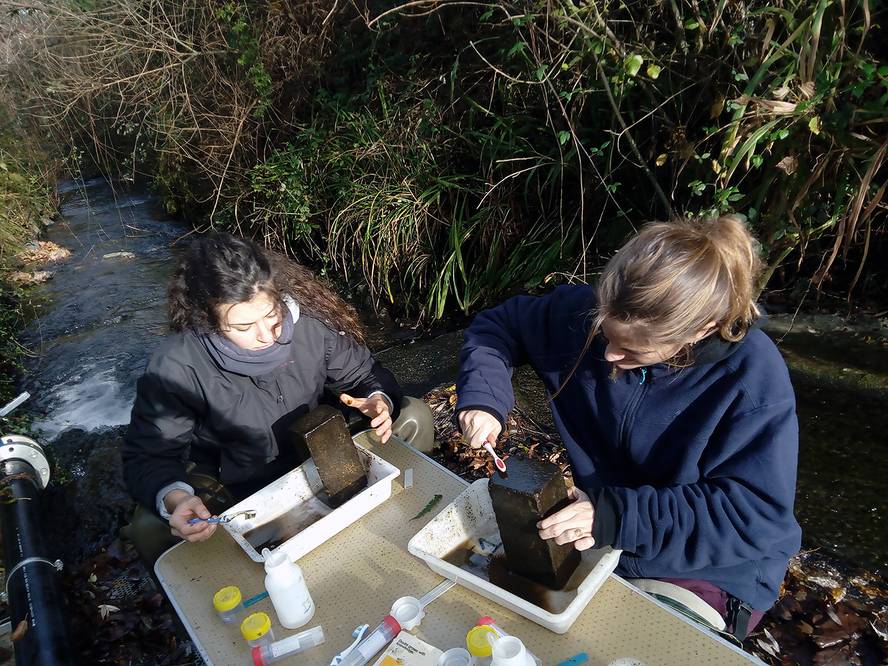They have shown that water purification affects the river ecosystem
The research group Fluvial Ecology of the UPV/EHU has shown that, despite being well treated and diluted, purification water affects the diversity of rivers and the trophic network through an experiment with the waters of a large sewage treatment plant. They therefore conclude that the limitations and procedures currently in place for waste water treatment are not sufficient to protect ecosystems.
The study was published in the Journal of Environmental Management. The article explains that waste water treatment plants and environmental regulatory procedures have significantly improved water quality worldwide. However, the effluents discharged from the treatment plants, although treated, remain contaminants, nutrients and pathogens. Advanced treatment plants, i.e. those applying additional treatments to reduce nutrients, organic matter and metals, also have an impact if emissions are maintained for long periods of time.
To reach this conclusion, researchers from the UPV/EHU River Ecology group have conducted an innovative experiment. First, several variables were measured during one year in two sections selected in a stream without contamination. Later, well treated and heavily diluted water in a sewage treatment plant were diverted to one of these sections and measurements were carried out for another year in the two sections to determine the changes produced by these discharges in the diversity of the stream, in the trophic network and in the functioning of the ecosystem.
Thus, it was demonstrated that the diversity of invertebrates decreased and that the communities became more heterogeneous, proliferating algae and increasing the tendency to plant feeding. It is therefore noted that the most advanced procedures currently used in waste water treatment continue to affect freshwater ecosystems in order to preserve aquatic trophic networks.






